
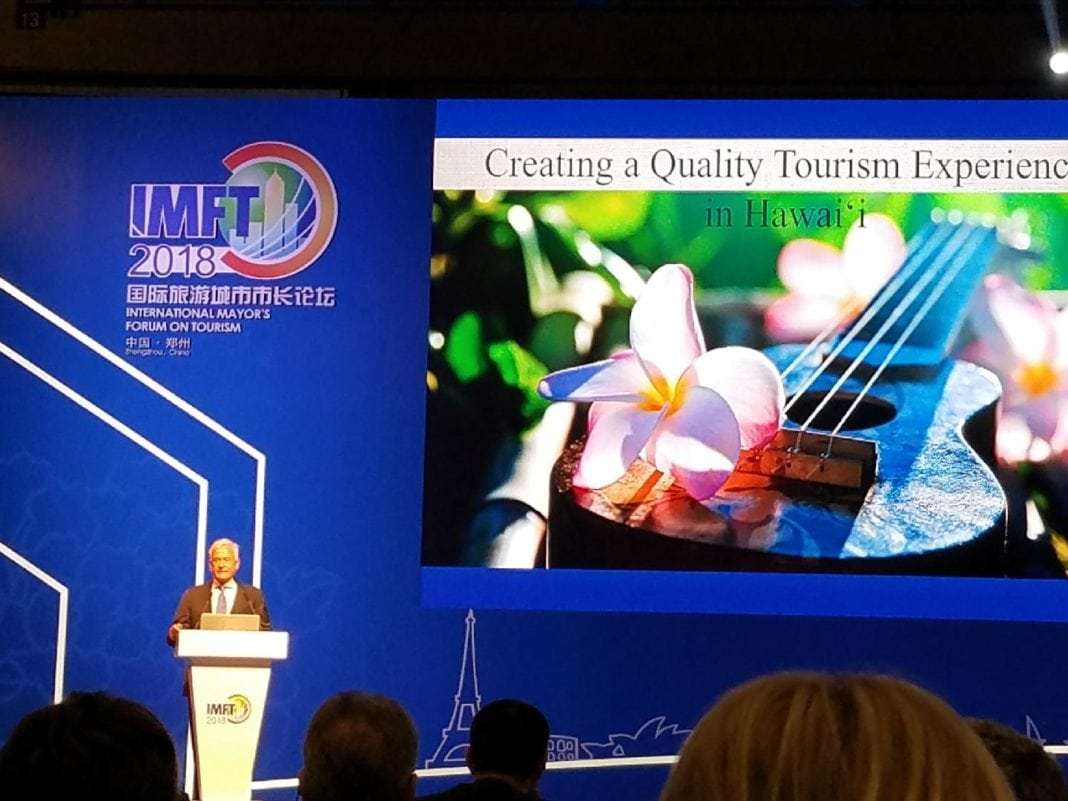
Quality in Hawaii Tourism: Honolulu Mayor Kirk Caldwell on a global UNWTO stage in China
Creating a Quality Tourism Experience in Hawaii was on center stage at the 2018 International Mayor’s Forum on Tourism (IMFT)-Zhengzhou, China. The conference was held by the Ministry of Culture and Tourism of the People’s Republic of China and the People’s Government of Henan Province in collaboration with World Tourism Organization (UNWTO). This global event concluded in Zhengzhou, Henan Province yesterday.
Under the theme of “City Tourism Innovation in an Era of Sharing Economy”, IMFT 2018 brought together knowledge and experience from mayors of worldwide tourism cities, as well as experts of international organizations, through a variety of activities, including “Belt and Road” Tourism Cities Summit, Symposium, International Tourism Cities Exhibition & Show, to explore what role tourism can play significantly in pushing sustainable urban development.
The keynote speaker was Mayor Kirk Caldwell from Honolulu, Hawaii, USA.
Highlighting the importance of tourism to Hawai‘i’s economy, Mayor Kirk Caldwell delivered the keynote address on Monday, May 28 at the 2018 Mayor’s Forum on Tourism in Zhengzhou City, China.
In his presentation on Creating a Quality Tourism Experience in Hawaii, Mayor Caldwell highlighted the many aspects of Hawai‘i that make it a top world tourist destination, including its beauty, cleanliness and safety, as well as its unique Hawaiian culture and Aloha Spirit. He stated that developing quality tourism goes hand in hand with upgrading infrastructure and creating a unique visitor experiences that incorporate all that is special about Hawai‘i, including its rich multi-cultural heritage and its Hawaiian roots that are manifested in people’s daily lives. Mayor Caldwell also pointed to the desire of all of Hawai‘i’s people to share the Aloha Spirit with the world.
The mayor also took the opportunity to point to the recent volcanic activity on the Island of Hawai‘i (Big Island), noting that while it has severely affected residents in the activity area, the rest of the Hawaiian islands, including the majority of Hawai‘i Island itself, remain unaffected. Mayor Caldwell concluded his remarks by noting that quality must always be balanced with quantity. He said while tourism destinations may want to increase the number of visitors for economic and other reasons, the quality of the visitor experience and the needs and desires of local people must always be considered.
Mayor Caldwell attended the 2018 Mayor’s Forum on Tourism in Henan Province at the invitation of the China National Tourism Administration, the United Nations World Tourism Organization, and the People’s Government of Henan Province. The theme of the forum was “City Tourism Innovation in an Era of Sharing Economy.”
Mayor Caldwell is due back on O‘ahu on the morning of May 30. Managing Director Roy K. Amemiya Jr. is serving as Acting Mayor while Mayor Caldwell is away.
The IMFT has been successfully held in 2008, 2010, 2012 and 2014, which made it a grand event in international tourism communities with prospective and globally cooperative meaning and a high-end dialogue platform for tourism communities and cities in the world. The IMFT has been playing an important role in enhancing the development of global travel and tourism and also obtained high appraisal from the international tourism circles and cities.
As an important part of global tourism, China has achieved significant gains in tourism development under the leadership of the Chinese government and is becoming the strategic mainstay industry of the national economy. China has become the third-largest international inbound destination and the top tourist source country with the largest global domestic tourism market. China’s tourism progress is related to industrialization, socialization, internationalization and modernization. Henan, as the host province of IMFT, is a major tourist source region, destination and distribution center in central China, known for its economic strength and abundant cultural and tourism resources. It is an important node province in China’s development initiative of “One Belt and One Road”, which has a great bearing on not only China but also on the rest of the world.

Public private partnership key to innovation and sustainable growth, WTTC chief tells UNWTO
Speaking at the World Tourism Organization (UNWTO) Executive Council in San Sebastian, Spain, today, WTTC President & CEO Gloria Guevara indicated her support for new UNWTO Secretary General, Zurab Pololikashvili and highlighted the importance of public private partnership in the Travel & Tourism sector.
Travel & Tourism, which already accounts for 10.4% of GDP and 313 million jobs around the world, is set to grow significantly over the coming years. International arrivals will reach 1.8 billion by 2030 according to UNWTO forecasts and IATA estimates a near doubling of air passengers from 4 billion to 7.8 billion a year over a similar timeframe.
Ms. Guevara said, “Travel & Tourism is set to grow by 4% a year over the next ten years. It is in all our interests to maximize the opportunities of this growth. WTTC Members are clear that we should focus on three priority areas in order to achieve this. First, security and travel facilitation is fundamental – without people travelling safely and securely there is no tourism. Second, crisis preparedness and management – ensuring our destinations, companies and communities are resilient. Third, sustainable growth – planning for growth to ensure tourism benefits all, taking action on climate change, providing inclusive and sustainable jobs, and making sure we are socially responsible. Technological innovation and the digital agenda will be critical delivering a sustainable future for our sector.
I am delighted that these priorities as identified by the CEOs who make up WTTC’s membership are in alignment with those announced today by the new Secretary General of UNWTO, Zurab Pololikashvili. I am looking forward to working closely with the new Secretary General and his team over the coming years. The spirit of public private partnership is alive and well between our two organisations and together we will make sure that our sector continues to thrive, and create jobs across every country in the world.”
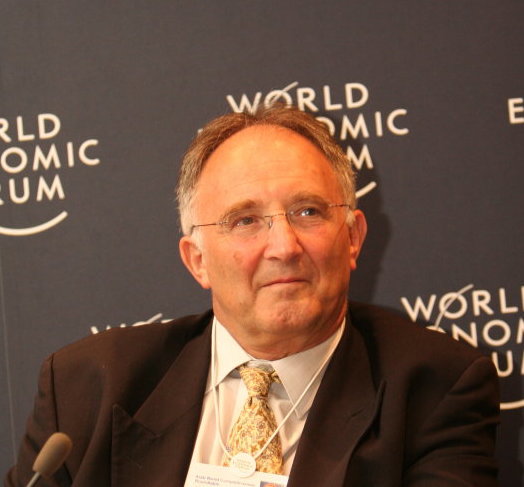
“I have caught sight of the Enemy and he is Us” – Pogo 1972
23rd May 2018, Mauritius
Speaking today at the International Conference on Digitalisation and Sustainable Tourism in Mauritius, Professor Geoffrey Lipman co-founder of SUNx and TraNexus blockchain solutions highlighted the fact that:
“Climate Change is the major eXistential challenge we face – if we fail to respond now, our entire planetary lifestyle will be shattered irreversibly. There are no options.
Professor Lipman described the link between the increasing volatility, scale and destructiveness of extreme weather, with the starvation, poverty, disease, migration and conflict that it causes. He said:
“Travel & Tourism, as a lead global Socio-economic Development Agent must step up to the plate with actions. As a leader, we will need to be in the forefront of change and the more so many of our core products/attributes are in the front line – transport (particularly aviation), coastal facilities, infrastructure for example will need radical transformation and support. We are not yet going far enough, fast enough and haven’t focused on the real potential impacts. Nor have we put in place mechanisms to put the sector in the mainstream. We will need to embrace the green, the blue, the circular, the sharing and the sufficiency economies. Not just study but embrace them. We will need to adapt our institutions to be more visionary, nimble and inclusive. SUNx – the Strong Universal Network – has been established to help keep our eyes on the ball and our minds on the stakes.”
He described how Technology, specifically Blockchain, will be a major factor in determining success or failure. He explained that this will be through changes to transport propulsion systems, energy efficient buildings and improved border crossings. He went on to say:
“It will help enhance security through positive identification, make bookings and fulfilment easier, faster and safer, it will revolutionise marketing and promotion through augmented reality. And it will rationalise and strengthen payment systems and investment flows.”
Speaking about the fact that small island states and poorer countries are first in the line of fire he concluded by saying:
“It is fitting that Mauritius has had the vision to focus on this at the time of its 50th Anniversary as a sovereign state. You will need to act now and act out of the box, to build on your incredible success story and help the world make it for the next 50 years. Business as usual is not enough: moderate change is not enough: only total transformation is enough.”
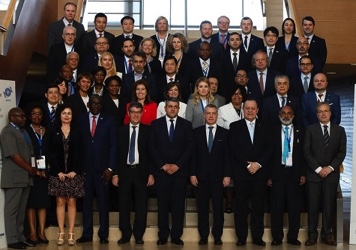
UNWTO’s Executive Council supports the priorities of the Secretary-General for his mandate and new management team
The city of San Sebastian, Spain hosted the 108th meeting of the Executive Council of the World Tourism Organization (UNWTO) from 23-25 May. During the meeting, Secretary-General Zurab Pololikashvili obtained the support of this key governing body for the priorities that will set up the work of the organization for the coming years. Likewise, the Council supported the new structure of the UNWTO, its renewed institutional image and the designated management team for the implementation of the agreed programme of work.
Under Secretary-General Pololikashvili, who took office in January 2018, UNWTO will focus on five pillars for the period 2018-2019: innovation and the digital transformation; investments and entrepreneurship; education and employment; safe, secure and seamless travel; and social, cultural and environmental sustainability.
In order to address new tourism challenges and trends and improve the business environment for the sector, the Organization will pay special attention to scaling up innovation and digitalization in the sector. This will lead to the creation of new job and business opportunities, an increase of investments in tourism, and enhanced competitiveness and sustainability for the sector.
The Secretary-General also presented the Organization’s new leadership structure, put in place to increase efficiency in achieving UNWTO’s goals of adding value to members, increasing membership and serving the tourism sector as a whole.
“This is a time of renewal for our organization. Listening closely to the opinions and needs of all our members and partners is key”, Pololikashvili stated during the opening ceremony.
The Minister of Energy, Tourism and the Digital Agenda of Spain, Álvaro Nadal, praised the renewed impetus of the UNWTO under the leadership of Zurab Pololikashvili and highlighted tourism as “one of the most relevant international sectors, not only as an economic activity, but as an extraordinary vehicle for us to understand and get to know each other, something that only tourism can achieve”.
The Minister of Tourism of Argentina and President of the Executive Council, Gustavo Santos, affirmed that “we need to position tourism politically as a fundamental activity of the economy”.
The 109th, 110th and 111th sessions of the UNWTO Executive Council will take place in Bahrain, Azerbaijan and Russia, respectively.
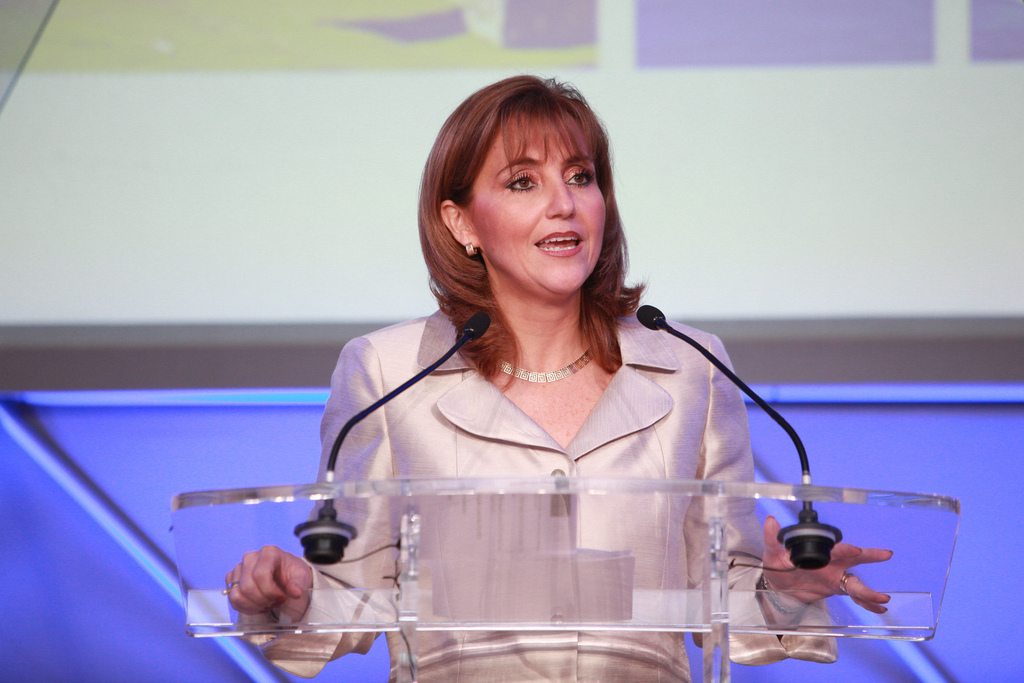
WTTC invites transport ministers to partner with tourism sector to implement biometrics to make travel more efficient and secure
The World Travel & Tourism Council (WTTC) today invited transport ministers attending the annual International Transport Forum in Leipzig, Germany, to partner with the tourism sector to implement biometrics to make travel more efficient and secure.
Speaking to the Open Ministerial Meeting, Gloria Guevara, WTTC President & CEO said “Travel & Tourism generates 10.4% of the world’s GDP and creates 313 million jobs. Transport – aviation, maritime, road and rail – is fundamental to our sector’s success. IATA is forecasting a rise from 4 billion annual passengers now to 7.8 billion over the next ten years, UNWTO estimates global international arrivals to rise from 1.3 to 1.8 billion by 2030. This growth poses a challenge not only to infrastructure capacity but also how to ensure these travellers can be processed efficiently and securely.”
“In order for us to achieve this growth and create jobs, we need to work together to find solutions which increase capacity, enhance customer experience and ensure security. Technology is the key and biometrics is a solution which is already being used around the world. I invite ministers of transport to partner with us to speed up the adoption of biometrics, and together we can ensure that more jobs are created.”
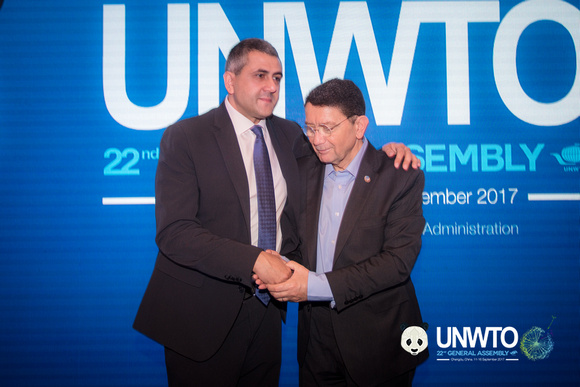
UNWTO Policy dismantled and destroyed: Can the Executive Council save UNWTO?
Will members of the UNWTO Executive Council stand silent in San Sebastian today? Will Executive Council countries stand behind Secretary General Zurab Pololikashvili, or will they respect the legacy of Dr. Taleb Rifai?
Today is the day many concerned about the future of the World Tourism Organization (UNWTO) have been looking forward to. Today is the day the UNWTO Executive Council is meeting for the first time under the leadership of Secretary General Zurab Pololikashvili.
Everyone would hope the Executive Council remembers the words by former Secretary General Dr. Taleb Rifai. Rifai said on December 27, 2017, when he handed over the reigns: “Whatever our business in life may be, let us always remember that our core business is, and will always be, to make this world a better place. I wish Mr. Zurab Pololikashvili, the incoming Secretary-General, every success in continuing to drive our sector forward to a better future.”
Now after almost 5 months in charge of UNWTO, almost all UNWTO top positions are now filled with cronies of Zurab Pololikashvili.
Our UNWTO, under the new regime of Pololikashvili, who has been surrounding himself with a new Chief of Staff from Russia and the deputy from Azerbaijan, and other key people, are mostly of his own geographical regions of comfort, none having any experience from the world of multilateral institutions or international protocol, both of which are necessary to run a successful international organization. Friends put into strategic positions appear to be protecting Pololikashvili from colleagues outside of this circle of buddies.
Pololikashvili let go of the Head of Administration and Finance, the Head of Human Resources, and the Head of IT, but promoted the Head of the Legal Council who stood by him at the UNWTO General Assembly.
Dr. Taleb Rifai during his decade of service succeeded in raising the bars of excellence within the UNWTO and within the UN system. When Rifai started, tourism was not a big agenda item for the United Nations. The UN climate was very different when Rifai handed over the reigns to Pololikashvili. We all can agree on one point, the enormous role the world’s largest economy – tourism – plays on the global stage.
Despite a low budget, Rifai worked to make a substantial difference in diversifying tourism in supporting initiatives like the Peace Through Tourism, Child Protection program, and the Silk Road project, just to name some.
However, all of these projects were canceled, dismantled, or destroyed by Pololikashvili. They were gone with the active broom Pololikashvili is cleaning house with, yet it leaves a trail of destruction in its wake.
During ITB Berlin in March 2018, Alla Perssolva was getting ready to deliver her report on the renowned UNWTO Silk Road program, which she has been working on for 28 years. Without Ms. Perssolva, Silk Road Tourism would not have earned the well-known brand name status it enjoys today. Alla Peressolova was very much looking forward to leading both events at ITB to conclude her UNWTO term and was then hit by a surprise when her name was not on the Berlin travel list. When trying to discuss this with UNWTO Secretary-General Zurab Pololikashvili, he was not available to talk to her. Again, no discussion, no response.
November 29, 2017, was all about honoring Carlos Vogeler, executive director of the World Tourism Organization (UNWTO) during the final session of the UNWTO Conference on Jobs and Inclusive Growth in Montego Bay Jamaica. Vogeler was honored by the Jamaica Minister Bartlett for 9 years of hard work for UNWTO.
Mr. Vogeler has been devoted to his position at UNWTO. Most tourism leaders considered him the second man in UNWTO. Travel and tourism was a 24/7 job for Carlos, and it showed with his results. At the Sustainable Tourism Conference in Jamaica, he again gave his very best, and was leading the UNWTO delegation with Taleb Rifai. It was his last assignment. Mr. Vogeler was unable to discuss his desire to stay on at UNWTO, or his unexpected sudden departure, which came as a surprise, even though his official period of services had ended. No response or giving in from Zurab.
These are big name players. There are many, many other staff members without known, public names who have been ousted, threatened, in addition to other key figures in UNWTO, who are gone from the platform. Whoosh goes the Pololikashvili broom.
On another note, transparent media relations is non-existent, and the transparency with which Dr. Rifai extended to the media is gone.
Of course, Pololikashvili is asked a lot of questions he doesn’t want to answer from inquiring media outlets. Now its time for the Executive Council to ask the very same questions.
This publication as an example has not been receiving responses from the UNWTO media department, “out of policy”.At the recent WTTC Summit eTN Publisher, Steinmetz was not allowed to ask a single question at a press conference Pololikashvili attended. According to a well-placed source, Pololikashvili instructed WTTC not to allow eTN to take the microphone during an open media conference. eTN finds that to be cowardly, and entirely inappropriate for a United Nations agency.
Dismantle and Destroy seems to be the management objective at UNWTO.
It appears many of the key projects Taleb Rifai put in place over many years of hard work are now being dismantled and destroyed.
All of this seems to be justified by an audit our newly-elected Secretary General ordered/purchased. He commissioned KPMG to conduct an audit, which delivered the manufactured reasoning for a clean sweep of the entire UNWTO organization.
It’s time for the Executive Council to be more than a rubber-stamp committee. After all, the Executive Council represents the countries of the world seeking income through the largest industry in the world: travel and tourism.
Perhaps its time to find out what it would take for a vote of “no confidence.” This has never happened before in the history of UNWTO, but never before was the global tourism industry in such peril, with the reigns of the world’s largest single industry in the hands of a despot Secretary General who has zero regard for the rich legacy he inherited from the esteemed, cherished leadership of Dr. Taleb Rifai.
This morning in Spain, the Executive Committee of UNWTO will convene for the first time since the new Secretary General Zurab Pololikashvili took charge of the specialized UN agency, based in Madrid, Spain.
The Executive Council’s task is to take all necessary measures, in consultation with the Secretary-General, for the implementation of its own decisions and recommendations of the Assembly and report thereon to the Assembly. The Council meets at least twice a year. Let’s hope they use the time wisely at the meeting today.
The Council consists of Full Members elected by the Assembly in the proportion of one Member for every five Full Members, in accordance with the Rules of Procedure laid down by the Assembly with a view to achieving fair and equitable geographical distribution.
The term of office of Members elected to the Council is four years, and elections for one-half of the Council membership are held every two years. Spain is a Permanent Member of the Executive Council. Currently, the chair of the Executive Council is Argentina, Vice Chair Zambia, and second Vice Chair India.
Member countries are: Argentina, Azerbaijan, Bahrain, Cabo, Verde, China, Congo, Democratic Republic of the Congo, Egypt, France, Ghana, Greece, India, Iran (Islamic Republic of), Italy, Jamaica, Japan, Lithuania, Mexico, Morocco, Mozambique, Namibia, Paraguay, Portugal, Republic of Korea, Romania, Russian Federation, Saudi Arabia, Seychelles, Slovakia, Spain, Sudan, Thailand, Uruguay, Zambia, and Zimbabwe. Flanders is the representative of the Associated Members, and the Representative of the Affiliate Members is the Instituto de Calidad Turistica Espanol (ICTE), Spain.
It is up to these members to question Pololikashvili on his antics and rampant mismanagement since he took office, a scant five months ago. It appears the situation to date has been that a new broom comes in, and cleans up whatever was there before. Even to the detriment of programs that were long in place and working successfully.
Almost on a daily basis this publication, eTN, is receiving messages from UNWTO employees, some in the very most inner circle, reporting to eTN about secret interrogations and intimidation of longtime staff members. The very same staff that were happily working cohesively under the Rifai leadership, are now living under a reign of terror, intimidation, and an absence of civility, generated by the newly-hired UNWTO staff and “management.”
So again, perhaps its time to find out what it would take for a vote of “no confidence.” This is new ground for UNWTO, and it is putting global tourism in danger, with the reigns of the world’s largest single industry in the hands of a despot Secretary General who has zero regard for the rich legacy he inherited from the esteemed, cherished leadership of Taleb Rifai.
Dismantling and destroying is not the leadership UNWTO deserves. It’s also not fair to do this to a predecessor, especially to a man of the character and standing Dr. Taleb Rifa earned in the global travel and tourism community.
We ask again: Will members of the Executive Council stand silent in San Sebastian today?
Taleb Rifai and Zurab Pololikashvili were not available for comments on this breaking news.
All eyes, with a keen interest in preserving our UNWTO, will be watching events in Madrid tomorrow.
Reference is made to articles published earlier by eTN and relevant to issues here. it would be worth for UNWTO members to read them again.
- WTTC Summit 2018 Buenos Aires: Was it worth it?
- New UNWTO Deputy Secretary General, how did he get there?
- Silk Road Tourism was Alla Peressolova: UNWTO termination without explanation
- What happened and what is next for UNWTO? The untold story continues…
- UNWTO slams door on Peace Through Tourism
- Taleb Rifai’s final words as UNWTO Secretary General: Make this world a better place
- Revenge? UNWTO fires Executive Director Carlos Vogeler
- To the new UNWTO Secretary-General Zurab Pololikashvili: Congratulations!
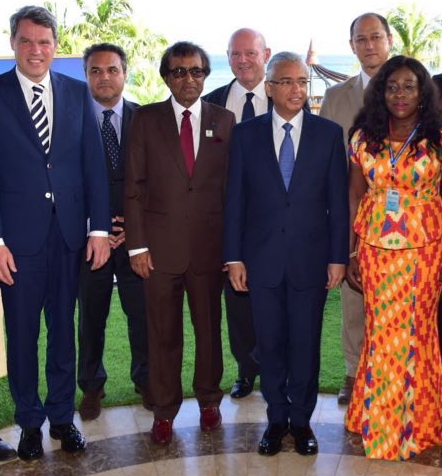
Digitalize & Sustainable Tourism Conference opened in Mauritius
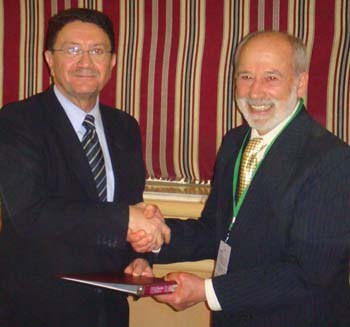
UNWTO says NO to Peace Through Tourism
It took just one short email for World Tourism Organization (UNWTO) Secretary-General Zurab Pololikashvil’s Azerbaijani chief of staff to destroy three years of hard work and expectation by Louis D’Amore, known as the man behind Peace Through Tourism. D’Amore is the founder and president of the International Institute for Peace Through Tourism (IIPT). IIPT is recognized and highly respected worldwide.
It took this short email in March to step on the role, legacy, and work of former UNWTO Secretary General Dr. Taleb Rifai. Rifai was an outspoken supporter of Louis D’Amore and peace through tourism. Dr. Taleb Rifai joined IIPT as the head of their advisory committee.
The email by the UNWTO chief of staff simply said: “UNWTO decided to no longer have a part in the IIPT – UNWTO summit planned for August in Montreal, Canada.”
UNWTO Secretary-General Zurab Pololikashvil personally did not contact Louis D’Amore or was available for a discussion.
There was no further explanation given. Dr. Rifai made sure when he left UNWTO the cooperation with IIPT was on solid ground. A former executive director trusted to work with IIPT on the Summit was terminated from UNWTO on December 31, 2017.
Today IIPT issued the following statement:
“IIPT was advised in early 2018 that UNWTO would continue to be involved in the Summit as originally planned. However, we learned in mid-March that UNWTO would not be involved. Subsequently, the major source of funding anticipated for the Summit did not materialize. We are, therefore, unfortunately, having to cancel the summit.
We sincerely regret any inconvenience this may cause.
IIPT was very much looking forward to its 30th-anniversary‘ family reunion’ – and our best conference since Vancouver 1988 that first introduced the concept of Sustainable Tourism and launched the “Peace through Tourism Movement” with 800 delegates from 68 countries whose feedback stated, “it was the best conference they had ever attended.”
We look forward to our continued collaboration and our commitment to making travel and tourism “the world’s first global peace industry” and the belief that every traveler is potentially an ambassador for peace.”
Peace through Tourism is the brand developed after Louis D’Amore concluded the world’s first comprehensive study on the future of tourism in 1976. Louis D’Amore is known as the man of peace.
Last year the International Institute for Peace Through Tourism (IIPT) under the leadership of its founder and president Lous D’Amore announced: “IIPT is proud to be returning to Montreal, where IIPT was born in 1986 during the UN International Year of Peace, with a vision of travel and tourism becoming the world’s first “Global Peace Industry” and the belief that every traveler is potentially an “Ambassador for Peace.”
D’Amore was proud to partner with the World Tourism Organization (UNWTO) under the leadership of then Secretary-General Taleb Rifai when he announced the Montreal summit to take place in September 2017 after the conclusion of the UNWTO General Assembly in Chengdu, China. UNWTO Secretary General Dr. Taleb Rifai was set to be the keynote speaker.
It was a disappointment for IIPT when the United Nations World Tourism Organization (UNWTO) 22nd General Assembly scheduled to be held in Chengdu, China, had been rescheduled by its Chinese hosts.China decided to move the dates of the General Assembly forward in September so that it now ends on September 16, just prior to the planned NWTO-IIPT Global Summit in Montreal on September 17-21.
This was making it very difficult for most the featured speakers scheduled for September 18 and 19 – the days of the “Official Conference of the UN International Year of Sustainable Tourism for Development” – to arrive in Montreal in time for their scheduled participation.
Following consultation with Dr. Taleb Rifai, UNWTO Secretary-General it was decided to re-schedule the UNWTO-IIPT Global Summit. It was re-scheduled for August 27-30 2018.
Louis D’Amore was successful in building a “Coalition of Partners for World Peace through” Tourism with more than 30 prestigious international organizations – all committed to a ‘Millennium Project” that contributes to the vision of tourism as a global peace industry. As well, IIPT has several active chapters and international networks including an Educators, Community Tourism, Cultural Tourism, Spirituality in Tourism and an International Student/Youth Leadership Network.
D’Amore has been instrumental in promoting the travel and tourism industry as the world’s first “Global Peace Industry” since the founding of IIPT in 1986.
Mr. D’Amore has been a pioneer in promoting a social and environmental ethic within the travel and tourism industry since the mid-70’s. In 1992, following the U.N. Conference on Environment and Development (Rio Summit), he developed the world’s first Code of Ethics and Guidelines for Sustainable Tourism for the Canadian tourism industry.
The UNWTO – IIPT Global Summit was commemorated IIPT’s 30th anniversary year since its First Global Conference. The Global Summit planned to maintain its original theme while also giving a new emphasis as 2018 is the China – Canada Year of Tourism, and China – Europe Year of Tourism
IIPT Founder and President, Louis D’Amore used the occasion of the UNWTO Conference in Jamaica in November to announce the new dates for the Global Summit named: Sustainable Tourism for Development and Peace. The summit was to be co-organized by the UN World Tourism Organization and the International Institute for Peace through Tourism (IIPT).
No one at UNWTO was available for comments.
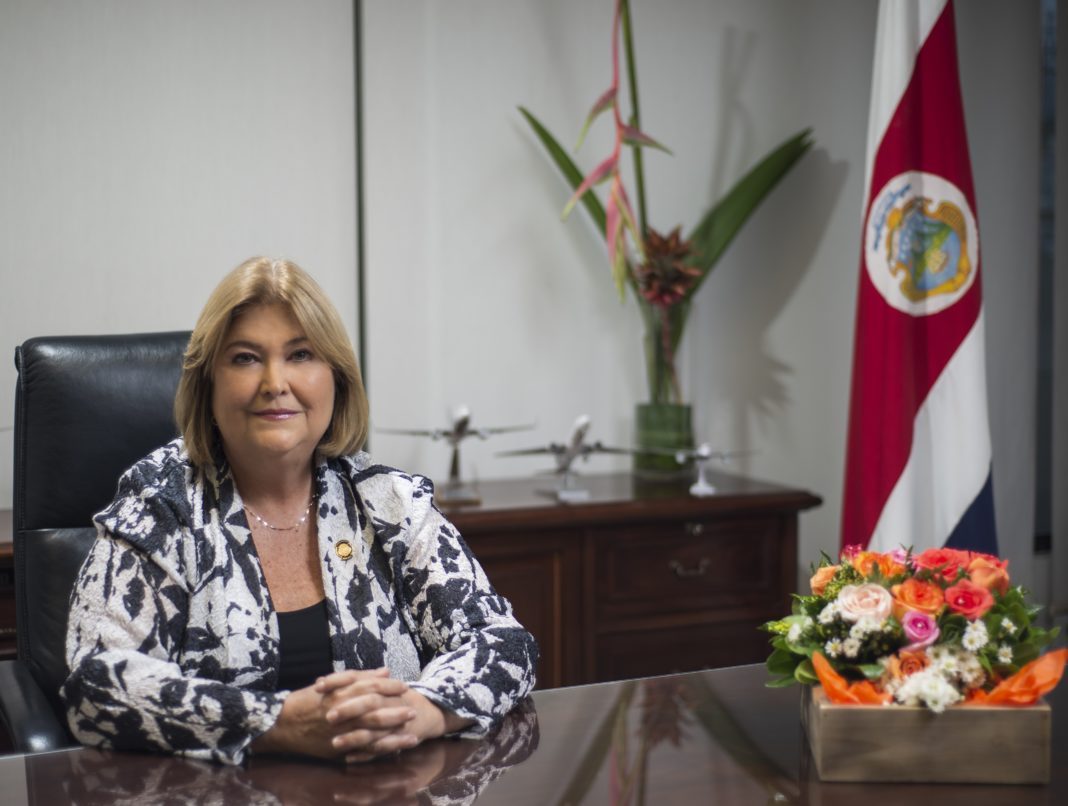
Costa Rica appoints new Tourism Minister: María Amalia Revelo Raventós
The newly-elected President of Costa Rica, Mr. Carlos Alvarado Quesada, has chosen María Amalia Revelo Raventós as the country’s new Tourism Minister, replacing Mauricio Ventura as head of the department.
María Amalia Revelo holds a master’s degree in Business Administration from the prestigious INCAE Business School and a bachelor’s degree in Statistics from the University of Costa Rica. She boasts over 40 years’ experience in the country’s tourism sector, where she has held a number of positions of high responsibility in both the public and private sectors. She was also Deputy Manager and Marketing Director at the Costa Rican Tourism Board (ICT), where she developed and implemented key marketing strategies to promote the tourism industry in Costa Rica.
Among her priorities as Tourism Minister are the promotion of medium-sized and small companies; the development of new local destinations and products, with a special focus on culture and gastronomy; and the strengthening of the joint work between the public and private sectors. Sustainability will be a cross axis in all her actions in the Ministry. In addition, she will also work on the positioning of Costa Rica as an attractive destination for the MICE industry (now that the country’s new Convention Centre is open) and on attracting new flight routes to the country.
Just before the appointment, María Amalia Revelo held the position of Commercial Director and Advisor at Aeris Holding, where she was in charge of developing new flight routes and attracting airlines to Juan Santamaría International Airport (San José) and Daniel Oduber Quirós Aiport (Liberia).
The new Tourism Minister has also taken an active part in trade unions and organizations within the private sector of Costa Rica. She was a member of the boards of directors at the National Chamber of Tourism (Canatur), Site Chapter Costa Rica, the Association of Professionals in Tourism (ACOPROT) and the Meetings and Incentives Association.
María Amalia Revelo has received some important awards throughout her career in the Costa Rican tourism sector, including EXPOTUR’s “Best Promoter” in 1987 and “Pioneering Woman in Tourism” in 2007.
Revelo’s experience and career has generated great expectation and confidence within the Costa Rican tourism sector. “We are very pleased with María Amalia’s appointment. We know how hard she works, so we are truly confident that her vast experience in the industry will greatly contribute to further develop and improve tourism in the country,” said Sary Valverde, President of the National Chamber of Tourism (Canatur).
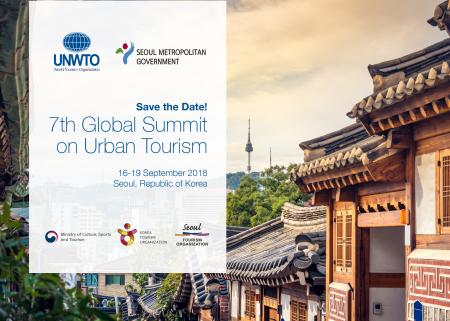
7th Global Summit on Urban Tourism
The World Tourism Organization (UNWTO) is pleased to inform that the 7th Global Summit on Urban Tourism will take place from 16-19 September 2018 in Seoul, at the kind invitation of the Ministry of Culture, Sports and Tourism of the Republic of Korea and the Seoul Metropolitan Government.
The provisional programme, general information note and registration online will be available shortly.
